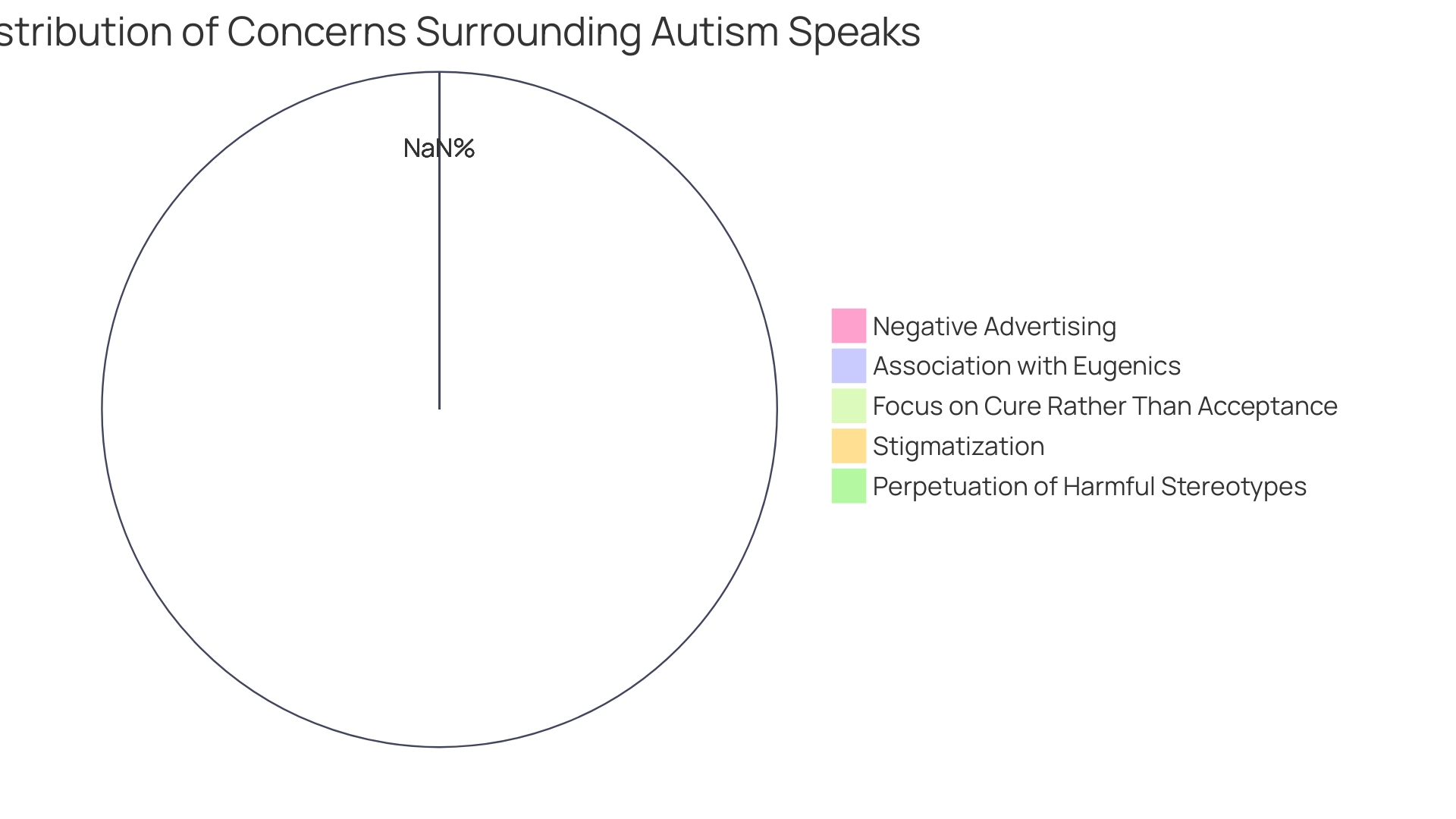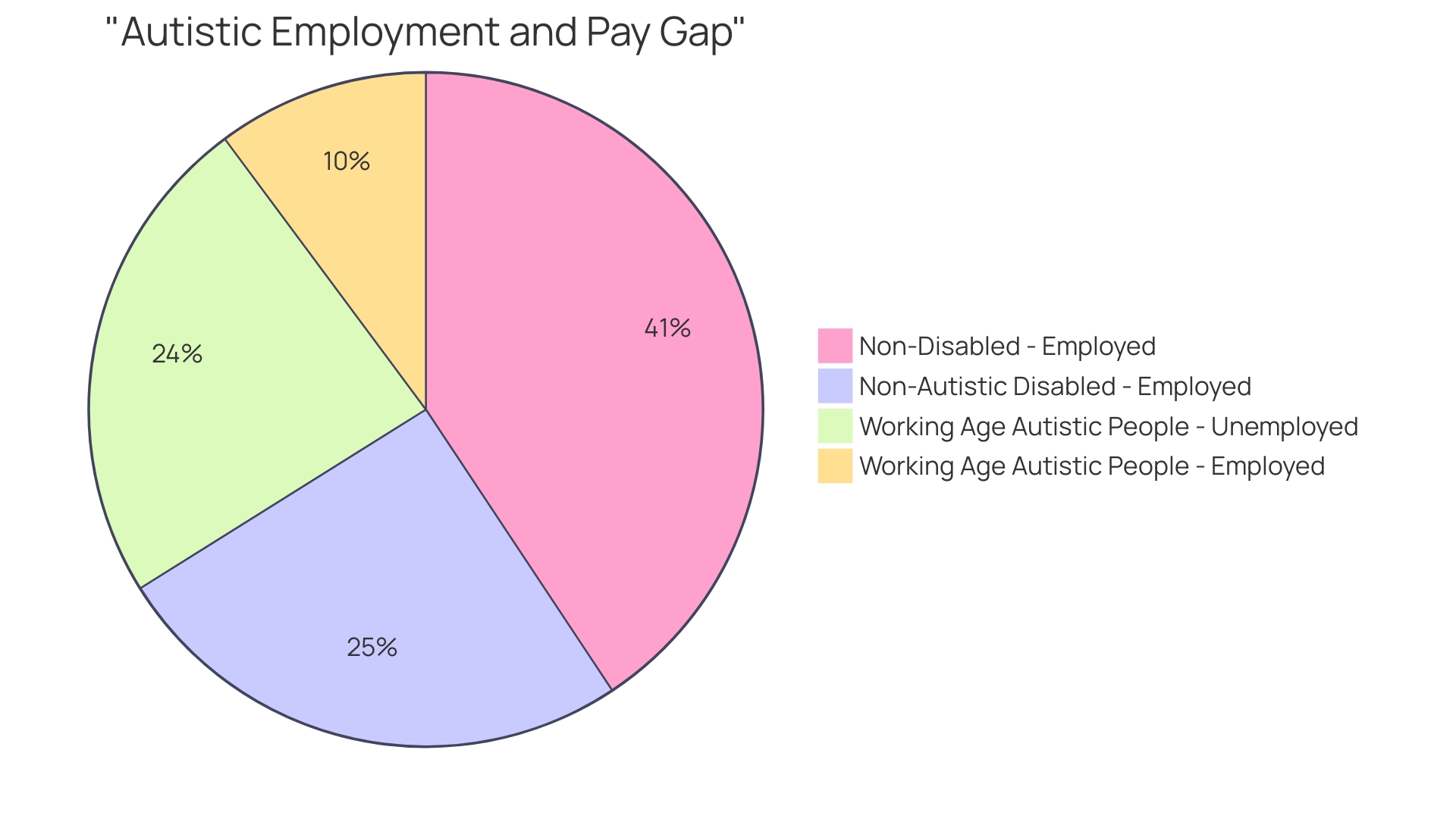Introduction
Autism Speaks, a prominent organization focused on autism advocacy, has faced significant criticism over its historical approach to raising awareness about autism. Critics argue that the organization's use of negative advertising and association with eugenics has perpetuated harmful stereotypes and focused on finding a "cure" rather than promoting acceptance.
Additionally, concerns have been raised about the lack of autistic representation within the organization and its decision-making processes, as well as the fear mongering and stereotyping present in their awareness campaigns. Another contentious issue is Autism Speaks' support for Applied Behavior Analysis (ABA) therapy, which some argue disregards the unique needs of autistic individuals.
Furthermore, there are concerns about the organization's limited resources and support for autistic adults and their families, as well as its global influence on autism policy and research. Despite these criticisms, Autism Speaks has made efforts to address concerns and incorporate more diverse perspectives. However, the depth of these changes and their impact on the organization's advocacy strategies are still being questioned. It is essential for advocacy organizations to respect and embrace the concerns of the autistic community regarding research integrity and intervention quality.
Historical Criticisms: Negative Advertising and Eugenics
Autism Speaks has faced criticism for its historical approach to raising awareness about autism. One of the main concerns revolves around the organization's use of negative advertising and its association with eugenics.
Critics argue that the organization's messaging has often painted autism as a burden and focused on finding a “cure,” rather than promoting acceptance and understanding of autistic individuals. This approach has been seen as stigmatizing and perpetuating harmful stereotypes.

Lack of Autistic Representation and Inclusive Practices
Another major concern surrounding Autism Speaks is the lack of autistic representation within the organization and its decision-making processes. Critics argue that the organization has historically failed to include the voices and perspectives of autistic individuals, instead relying on non-autistic individuals to speak on their behalf.
This lack of representation has raised questions about the organization's ability to truly understand the needs and experiences of those it claims to advocate for. Additionally, there have been concerns about the organization's commitment to inclusive practices, with some arguing that Autism Speaks has not done enough to actively involve autistic individuals in shaping policies and programs.
Fear Mongering and Stereotyping in Awareness Campaigns
Amidst discussions surrounding Autism Speaks, critics have sounded the alarm on the organization's promotional strategies, suggesting that they veer into areas of fear mongering and inadvertently cast autism in a tragic light. By utilizing dramatic visuals and narratives that frame autism as a life-shattering condition, such campaigns are said to evoke fear instead of fostering understanding.
Dismayed advocates point out that depicting autism as uniformly catastrophic fails to reflect the diverse realities of those on the spectrum and could foster harmful stereotypes. Compounding the issue, stereotypes—misguided settled ideas about groups—can stem from sparse information and often linger, misleadingly shaped by media and enduring cultural narratives.
This only adds to the challenge of deconstructing myths around disability, such as the oversimplified belief that all persons with disabilities use wheelchairs. To promote a dissimilar view, one that sees societal barriers as the primary disabling factors, not personal impairments, is a shift towards a more inclusive perspective. A mindful choice in language, whether identity-first or person-first, plays a part in honoring individual preferences and challenging preconceived notions, promoting a fuller, more nuanced understanding of autism and its place in the spectrum of human experience.
Support for ABA and Its Impact on Autistic Individuals
Autism Speaks has been known to support and promote Applied Behavior Analysis (ABA) therapy as a treatment for autism. While ABA can be beneficial for some individuals, there is a growing concern about its potential negative impact on autistic individuals.
Critics argue that ABA focuses excessively on compliance and conformity, disregarding the unique strengths and needs of autistic individuals. There are also concerns about the use of aversive techniques and the potential for ABA to cause trauma and harm. These concerns have led to debates about the appropriateness and effectiveness of ABA as a therapeutic approach.

Limited Resources for Autistic Adults and Families
Autism Speaks has faced critique for what is seen as a significant gap in its advocacy and support, notably in addressing the systemic and ongoing needs of autistic individuals past childhood. As statistics bear out, the autistic population is not a small one, with Autistica's research suggesting around 1 in 70 people, or approximately 1 million individuals in the UK alone, are on the autism spectrum.
This figure, alarmingly, could be an understatement given not everyone with neurodiverse conditions identifies as having a long-term health challenge. Even among those of working age, reported figures suggest there could be 680,000 individuals with autism.
The majority of these individuals are keen to work. Yet, according to the National Autistic Society's research, there's a striking employment disparity with only about 30% of working age autistic individuals being employed.
This is in stark contrast to 50% employment among all disabled populations and 80% for those without disabilities. This challenges the notion that Autistic individuals' needs diminish with age. Moreover, when it comes to financial equality, autistic individuals face the most significant pay gap among all disability groups, earning on average a third less than non-disabled peers. This statistic underscores the necessity for organizations and advocacy groups to address the full lifespan needs of autistic people, pushing for equity not just in social support, but also through economic means and employment opportunities.

Global Influence and Impact on Policy and Research
Autism Speaks is a powerhouse with deep footprints in the autism community, shaping how the world views and addresses this condition. Nonetheless, a vocal segment has voiced unease over how the organization's sway could skew autism policy and research.
Concerns specifically touch on an apparent emphasis on "curing" autism, potentially overshadowing the importance of nurturing and celebrating autistic individuals as they are. Delving into the realm of interventions, there's an emerging recognition that research often contains design pitfalls.
These can obscure the clarity of results, casting doubt on their effectiveness and possibly overshadowing the scope of change they propose. Alarmingly, the potential harms or misrepresentations of these interventions are not always adequately conveyed, leaving gaps in shared knowledge with the community.
Now more than ever, the autistic populace, including those personally and professionally vested, is nudging the needle towards rectifying research standards. There's an earnest call for research to hold true respect for people with autism at its core. Within this discourse, the move from quasi-experimental studies towards randomized-controlled trials marks a significant shift. Clinicians rely on the most advanced studies to choose interventions, and the community is now challenging the autism research narrative to lean into studies that can stand rigorous scrutiny, ensuring interventions legitimacy and safety are upheld.
Evolution of Autism Speaks: Acknowledging Criticisms and Changes
Autism Speaks, facing years of critique from within the autistic community, has shifted its approach—increasing the representation of autistic voices in leadership and recalibrating its advocacy focus towards fostering acceptance and understanding. Despite integrating more diverse perspectives into its operations, the transformation of Autism Speaks is under continuous scrutiny.
Questions about how deep these changes go and their genuine impact on the organization's advocacy strategies persist. Recent research highlights the complexity of non-pharmacological interventions for autistic individuals, revealing how pivotal rigorous and respectful intervention research is.
These studies underscore the frequent presence of design flaws hindering clear assessments of effectiveness, harm potential, and the overall impact these may have on the community. Alarmingly, 1 in 45 adults in the U.S. is diagnosed with autism, suggesting a significant number of adults remain undiagnosed or misdiagnosed, which foregrounds the importance of informed and nuanced advocacy efforts. Understanding the realities of adult autism and self-identification remains crucial, especially given the openness of the neurodivergent community to self-diagnosis amidst the complexities and inconclusiveness of medical assessments. This illuminates the essential need for advocacy organizations to act with foundational respect for autistic persons by embracing community-driven concerns about research integrity and intervention quality.
Conclusion
In conclusion, Autism Speaks has faced significant criticism for its historical approach to raising awareness about autism. Concerns include negative advertising, association with eugenics, lack of autistic representation, fear mongering and stereotyping in campaigns, support for Applied Behavior Analysis (ABA) therapy, limited support for autistic adults and families, and global influence on policy and research.
To address these concerns, Autism Speaks has made efforts to incorporate diverse perspectives and shift towards promoting acceptance and understanding. However, questions persist about the depth of these changes and their impact on advocacy strategies.
It is crucial for advocacy organizations to listen to and respect the concerns of the autistic community regarding research integrity and intervention quality. Understanding the diverse realities of autism and actively involving autistic voices in decision-making are essential for effective support and advocacy.
Promoting acceptance and challenging harmful stereotypes is vital in awareness campaigns. Language choices that honor individual preferences and foster a nuanced understanding of autism can help dismantle misconceptions.
Furthermore, there is a need for careful consideration of therapeutic approaches like ABA, ensuring they address the unique strengths and needs of autistic individuals while avoiding potential harm. Support for autistic adults and their families should be a priority, addressing not only social support but also economic means and employment opportunities to achieve equity and inclusivity. Autism Speaks' global influence must align with the goal of celebrating autistic individuals as they are, rather than solely focusing on attempts to "cure" autism. Rigorous research is essential, upholding respect for autistic individuals and conveying the potential harms of interventions, aiming for interventions' legitimacy and safety. Overall, it is vital for Autism Speaks and similar organizations to evolve by genuinely incorporating autistic voices, challenging stereotypes, and prioritizing the well-being and needs of autistic individuals and their families throughout their lifespan.




